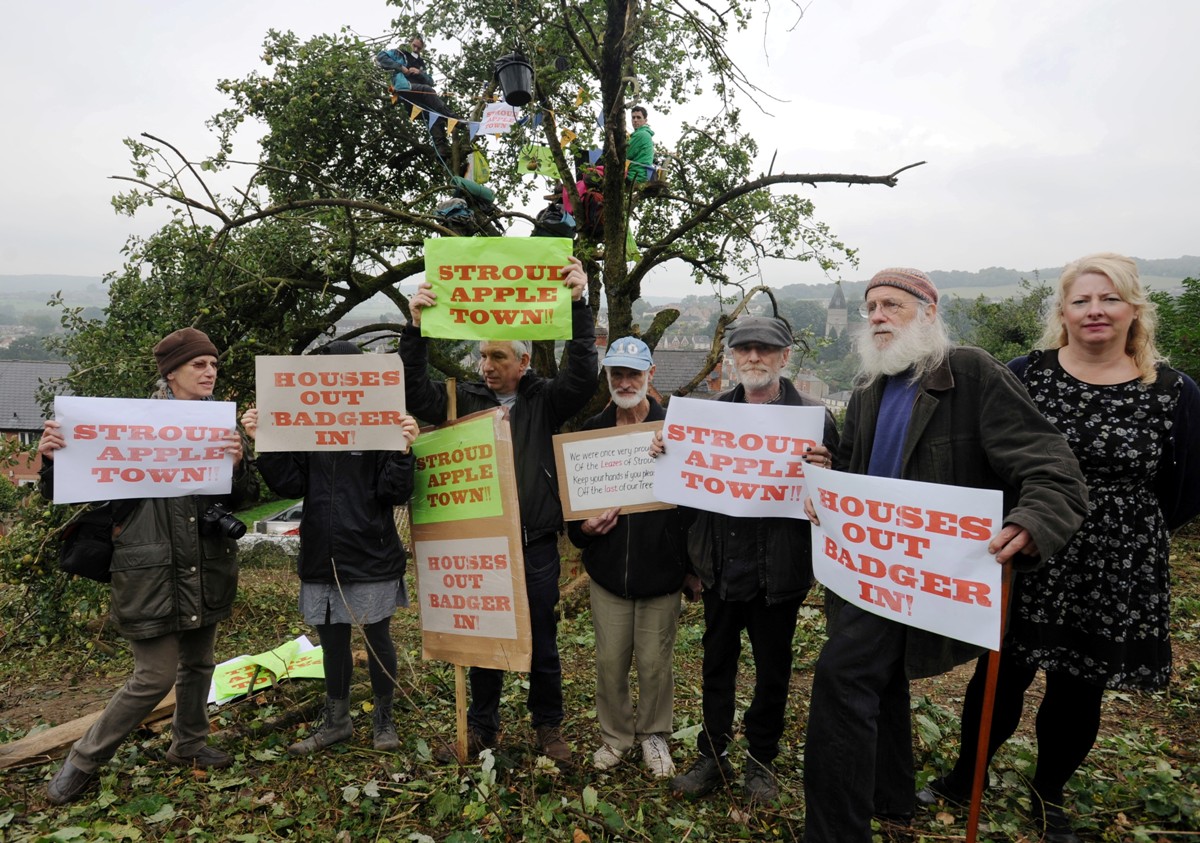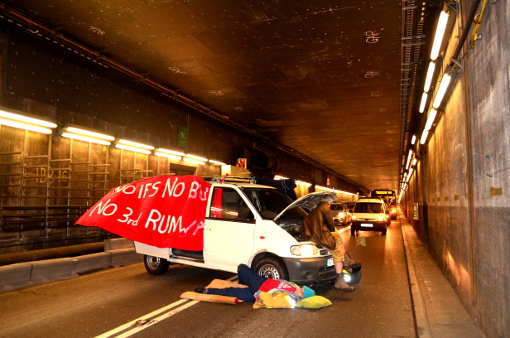About the camp
Reclaim the Fields (or RTF) UK was born in 2011, as a star in a wider constellation of food and land struggles that reaches around the globe. Since 2011, camps and other RTF gatherings have helped support local communities in struggle, share skills, developed networks, and strengthened the resistance to exploitation, in Bristol, west London, Gloucestershire, Nottingham and Fife among other locations.
Every two years there is also an international camp, where people from around Europe and beyond meet together to support a local struggle (from gold mining in Romania to open cast coal mining in Germany, for example). People share share stories and ideas about resistance and reclaiming our food system beyond national borders. This year, an international gathering will be held in the UK, in Dudleston, Shropshire, on the Welsh/English border.
The aims of the camp are:
- To support local communities in the west and north west of England, and the north of Wales with their struggles against fracking
- To increase participation in Reclaim the Fields
- To demonstrate visible, active opposition to prison construction
- To support Dudleston Community Protection Camp build a garden and infrastructure to become more self-reliant
- To demonstrate the interconnection between these struggles
- To inspire and radicalise everyone involved
What’s taking place?
- Two days of Action – Tuesday 1st & Wednesday 2nd September – demonstrations & actions against companies involved in the construction of the North Wales prison, as well as local fracking-related targets.
- Workshops & Skillshares – Over the bank holiday weekend there will be abundant opportunities to learn, share, discuss and connect with other people.
- Building & Growing on the site – Be part of installing gardens & low impact infrastructure at the community protection camp. Learn about permaculture, agroecology, forest gardening, mushroom growing, pallet construction, compost toilet making, off-grid electrics and more.
Why this camp? Why now?
- This camp has been organised to support the local community in Dudleston to resist fracking in their area (as well as working with other local anti-fracking groups & protection camps in the North West who have been resisting extreme energy developments for a number of years). To find out more about their struggle visit: http://frack-off.org.uk/blockade/dudleston-community-protection-camp/
Practical Information about the Camp
Click on the links below to find more practical information about the camp and how to get involved:
Getting involved
This is a DIY camp and everyone is needed to get stuck in to make it happen. People are needed to:
- Support with publicity before the event – sharing the gathering online, putting posters up, encouraging your local group to get involved. People are also needed to help design the programme, respond to emails & plan facilitation.
- Helping with site set up & building infrastructure (planning this in advance & being on site a few days before the gathering)
- Signing up to a shift over the weekend to help with cooking, site set up & safety, being on the welcome tent & so forth
- Supporting local groups to organise actions
If you can help with any of these tasks please email info@reclaimthefields.noflag.org.uk
Who are Reclaim the Fields?
We are a group of peasants, landless and prospective peasants, as well as people who are taking back control over food production.
We understand “peasants” as people who produce food on a small scale, for themselves or for the community, possibly selling a part of it. This also includes agricultural workers.
We support and encourage people to stay on the land and go back to the countryside. We promote food sovereignty (as defined in the Nyéléni declaration) and peasant agriculture, particularly among young people and urban dwellers, as well as alternative ways of life. In Europe, the concept ‘food sovereignty’ is not very common and could be clarified with ideas such as ‘food autonomy’ and control over food systems by inclusive communities, not only nations or states. We are determined to create alternatives to capitalism through cooperative, collective, autonomous, real-needs-oriented, small-scale production and initiatives. We are putting theory into practice and linking local practical action with global political struggles.
In order to achieve this, we participate in local actions through activist groups and cooperate with existing initiatives. This is why we choose not to be a homogeneous group, but to open up to the diversity of actors fighting the capitalist food production model. We address the issues of access to land, collective farming, seed rights and seed exchange. We strengthen the impact of our work through cooperation with activists who focus on different tasks but who share the same vision.
Nevertheless, our openness has some limits. We are determined to take back control over our lives and refuse any form of authoritarianism and hierarchy. We respect nature and living beings, but will neither accept nor tolerate any form of discrimination, be it based on race, religion, gender, nationality, sexual orientation or social status. We refuse and will actively oppose every form of exploitation of other people. With the same force and energy, we act with kindness and conviviality, making solidarity a concrete practice of our daily life.
We support the struggles and visions of la Via Campesina, and work to strengthen them. We wish to share the knowledge and the experience from years of struggle and peasant life and enrich it with the perspectives and strength of those of us who are not peasants, or not yet peasants. We all suffer the consequences of the same policies, and are all part of the same fight.
Read this in: French, German, Spanish





